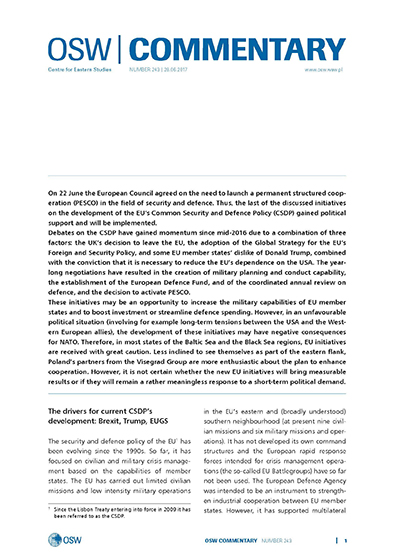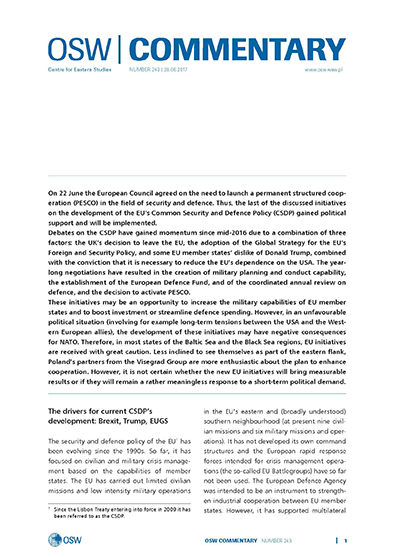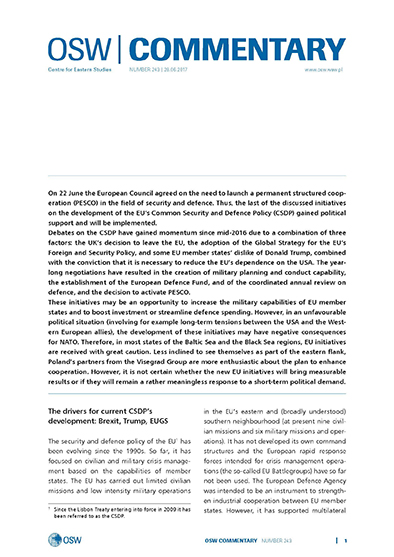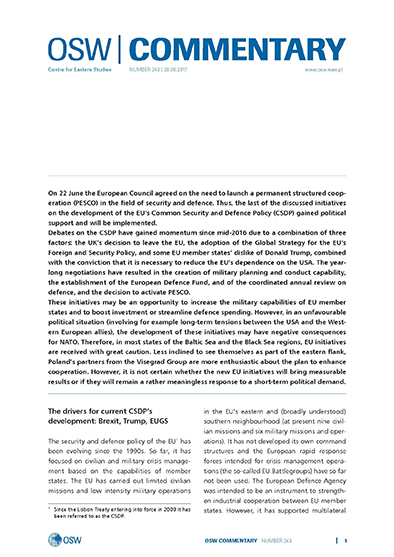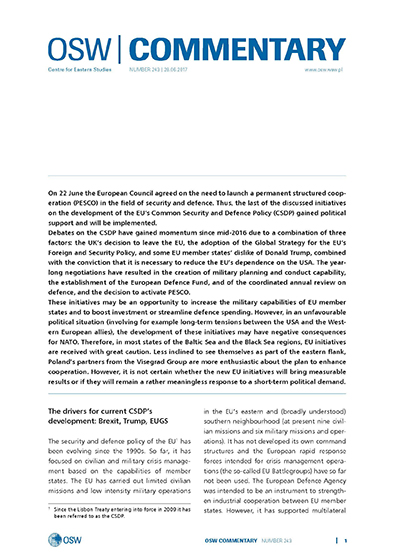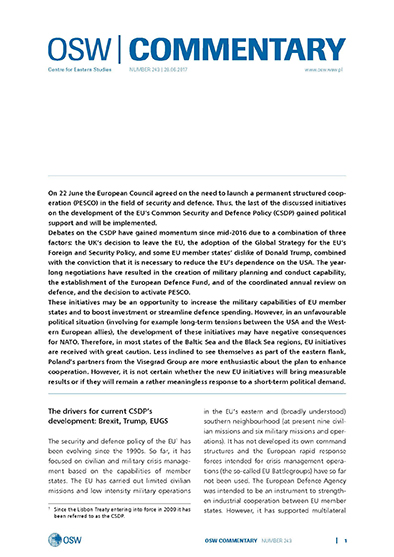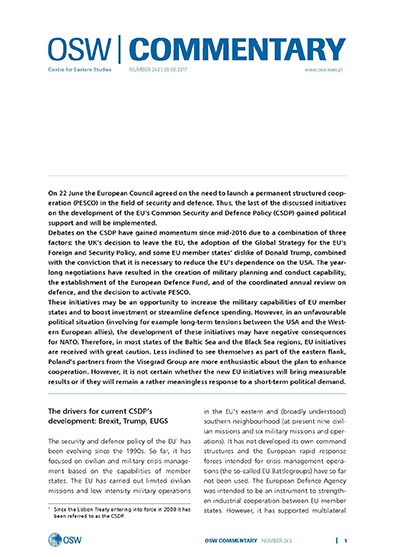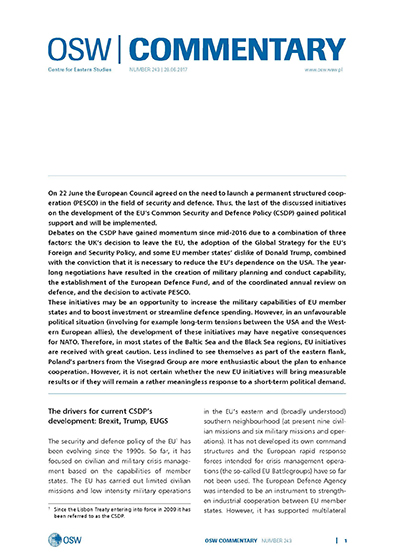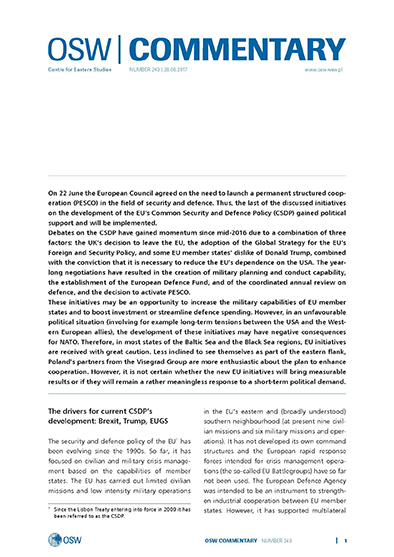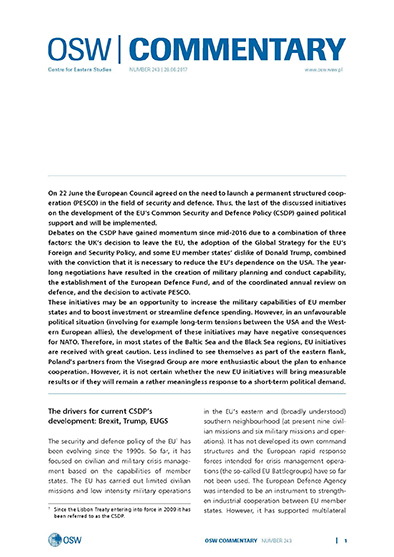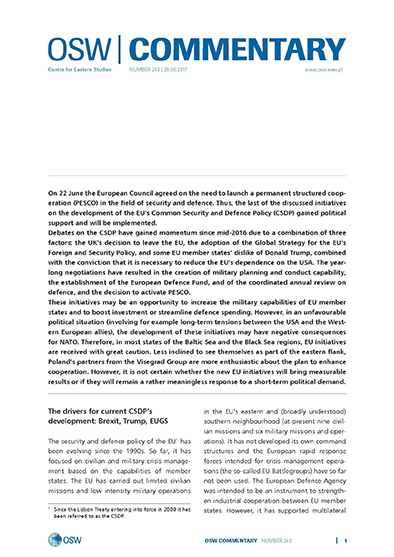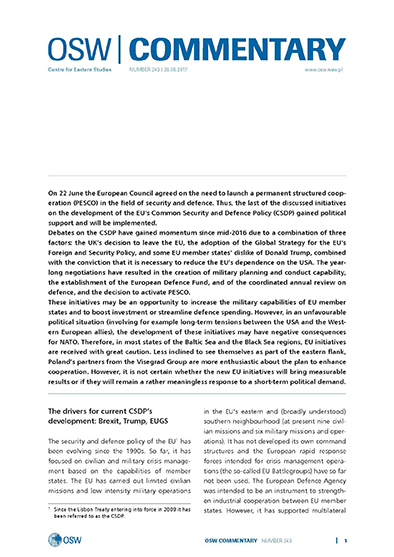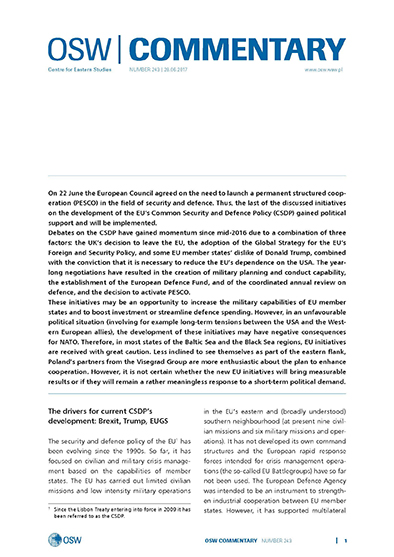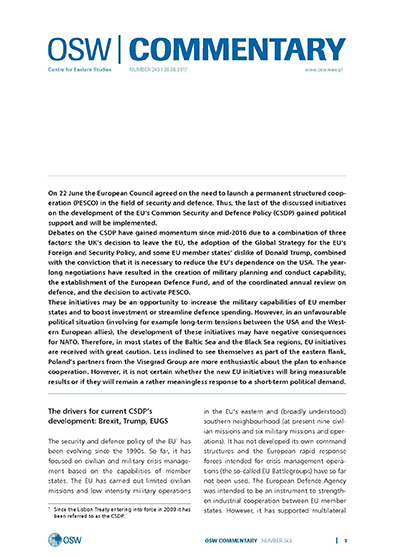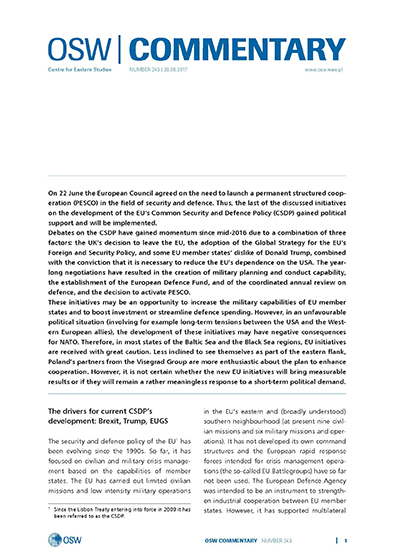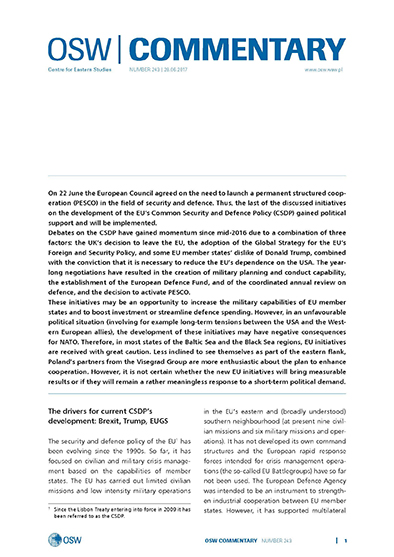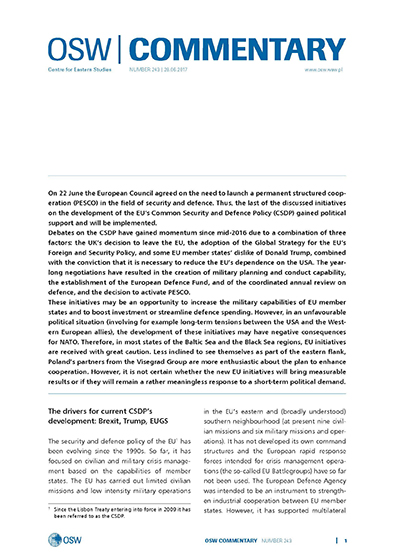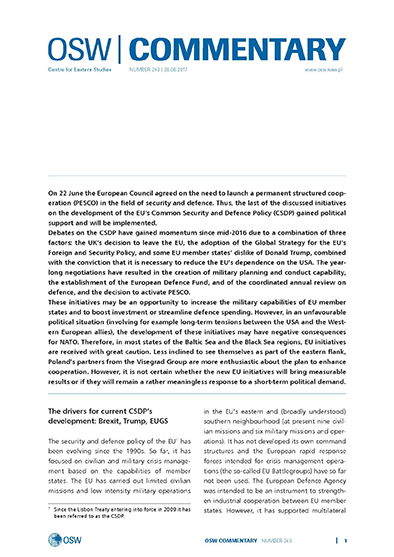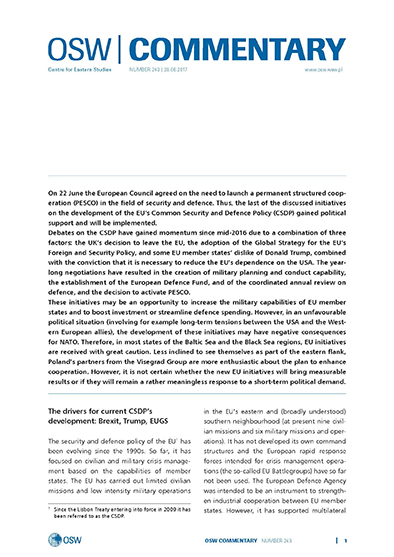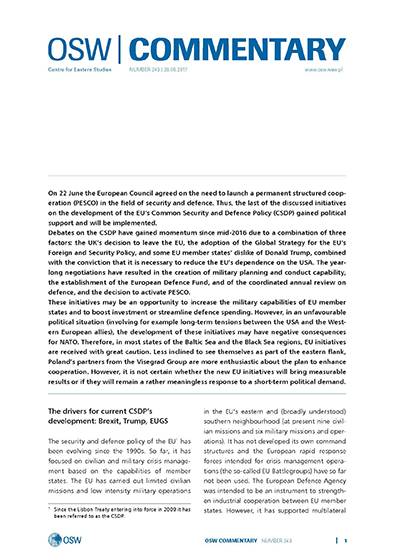Macedonia: a superficial democracy in the shadow of crises
Author(s): Marta Szpala / Language(s): English
Keywords: Macedonia; superficial democracy; democracy
Until 2008, Macedonia was leading the process of EU and NATO integration, and (after Croatia) was the fastest-reforming Western Balkan country. However, since Macedonia’s negotiations on joining the EU and NATO were blocked, in connection with its dispute with Greece, the Macedonian government has moved away from a policy of reform towards reinforcing its autocratic system and consolidating society behind nationalist slogans. Also the EU, which had hitherto been the driving force behind the changes, has due to its internal crises been paying little attention to violations of democratic standards in the Republic of Macedonia, tensions in relations between the Slavic Macedonians and the Albanian minority (which make up over 25% of the population), and the country’s permanent political domestic crises.In 2015 a wave of anti-government protests and the publication of recordings of phone taps testifying to the state’s effective takeover by the ruling VMRO-DPMNE party, as well as armed clashes between the police and a group of armed Albanians in Kumanovo, led to an escalation of the political crisis and mobilised the government’s opponents. Thanks to the mediation of the EU, an agreement was negotiated in July 2015 that was supposed to lead to the democratisation of the country. This compromise, however, was only a tactical manoeuvre which allowed the ruling camp to ease tensions. Moreover, the increase in importance of the Balkan migration route meant that Macedonia’s stability began to play an important role in reducing migratory pressures on the EU’s boundaries, and the Macedonian government has become an important partner for the EU in resolving the crisis. Consequently, the EU’s emphasis on democratising the system has definitely lessened. At the same time, high frustration and social polarisation, in conjunction with an undemocratic system, means that stability is very fragile, and periodic escalations in tensions can be expected.
More...
